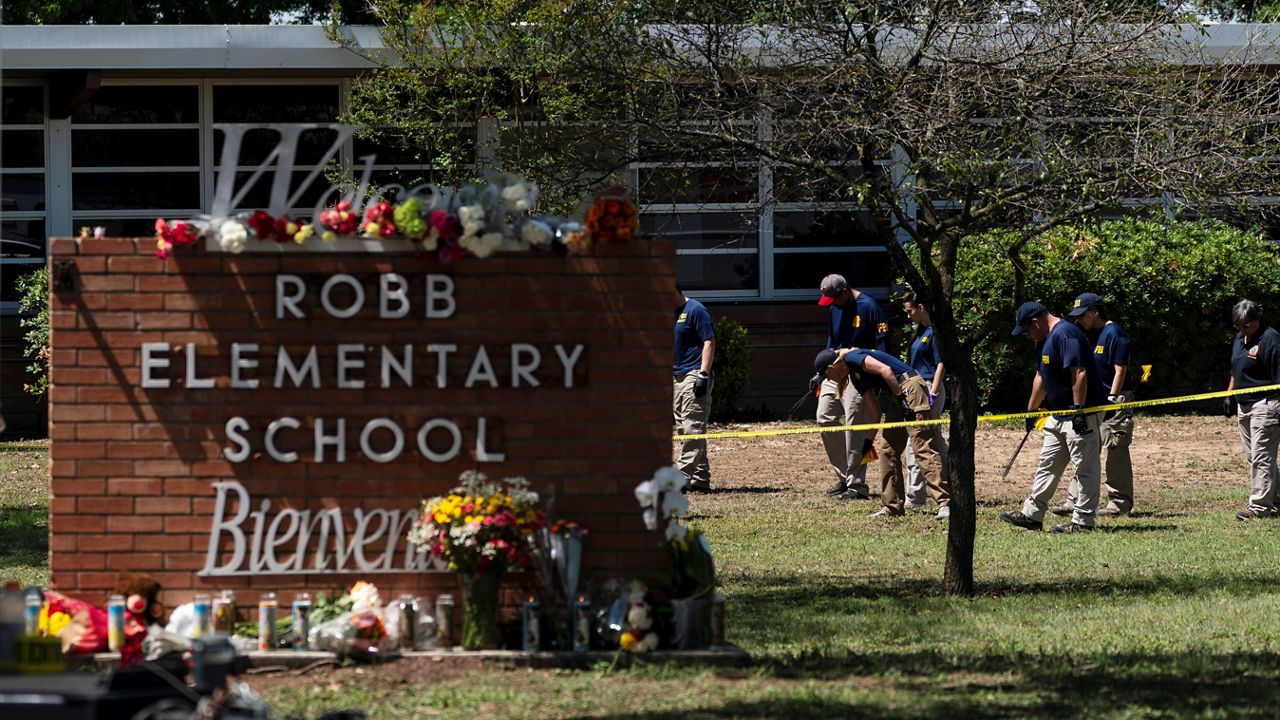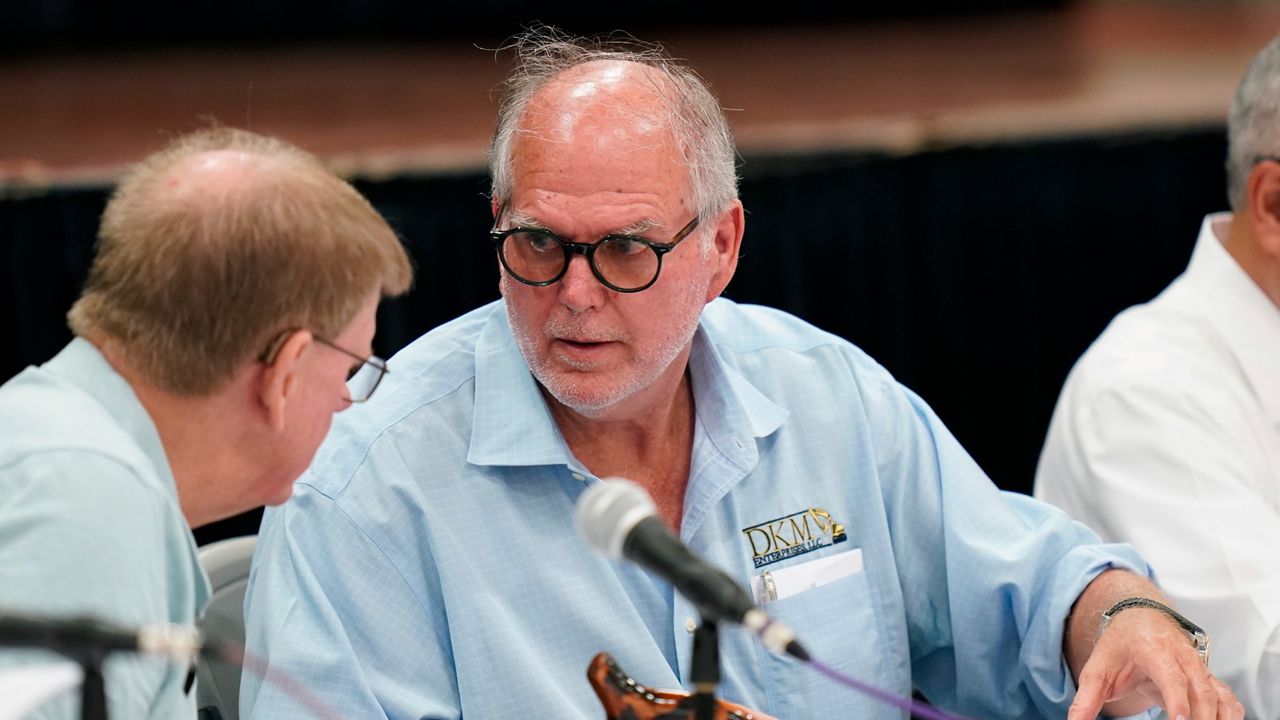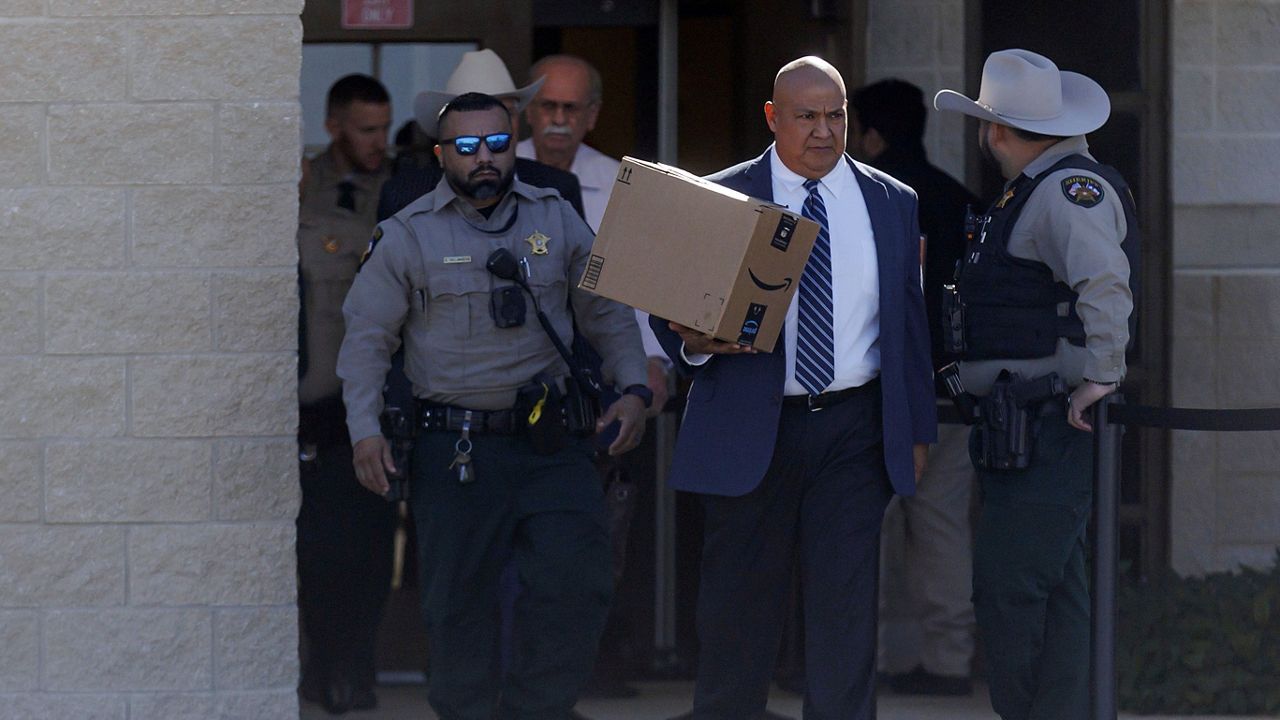Uvalde District Attorney Christina Mitchell Busbee defended her choice to delay the release of information around the Robb Elementary massacre to lawmakers and media outlets, saying it could possibly compromise charges she eventually might file.
The tug-of-war over information – and early stumbles in presenting facts on the elementary campus shooting – has ratcheted up frustration in Uvalde, especially among parents who fear sending their children back to school next month.
Sen. Roland Gutierrez, D-San Antonio, represents Uvalde. Early on, when Gutierrez formerly requested information on the shooting from the Department of Public Safety under the Public Information Act, he noted “a great deal of misinformation.” By the time Gutierrez sued DPS on June 22 to produce the information, he was calling it a cover-up.
Both Busbee and victim families intervened in the Gutierrez’s case against DPS, which was in District Judge Catherine Mauzy’s court on Thursday morning.
Texts submitted to the court by Gutierrez indicated DPS Director Steve McCraw was willing to provide the lawmaker at least some of the materials he requested. In a matter of days, however, McCraw backed out of that promise, deferring to Busbee.
Busbee, in some of her first comments on the case, defended her choice not to release requested information – a ballistics report, reports on police activity and active shooter policy standards – because she insisted it would be provided to the public without proper context.
“If there’s information placed out in the public, then people would be apt to come to a conclusion without hearing the full story,” Busbee said. “There’s no way I would be able to see that justice was done.”
The recent release of the hallway video – and how it traumatized victim families – is one example of telling only one piece of a huge, complex and ongoing investigation, Busbee said.
The initial scope of the Robb Elementary investigation was an officer-involved shooting, Busbee said. They needed to sort out the ballistics, however, to make sure officers that went into the classroom had not accidentally shot children.
But later in that first week, after viewing the hallway video, “it became very clear that we had something else,” Busbee said. At that point, the investigation was broadened at Busbee’s directive.
Busbee declined to explain what had been expanded, saying too much disclosure would adversely affect her investigation. The point to release the information is when she decides whether to file charges, and her office has yet to make that decision.
In his original petition, Gutierrez argued Busbee had admitted she was not completing an investigation. On the stand, Busbee clarified it would be the DPS and FBI completing the investigation.
Once facts were presented to her, then it would be her turn to decide whether the facts would lead to charges, Busbee said. Gutierrez pressed Busbee and McCraw who was left to charge if the sole gunman was dead. Neither answered directly.
Gutierrez made his conclusions clear.
“I think the District Attorney should charge every officer in that room for their inaction,” Gutierrez said, before being cut off by the judge, who often admonished Gutierrez for straying from the open records topic into other facts around the case.
Mauzy appeared ready to make a decision on Thursday, but then Martin Golando, who also represented Gutierrez in the case, made new open record arguments in closing comments. The state, representing DPS, asked for additional time to file a reply brief.
Both sides have until Monday at 5 p.m. to file briefs with the court.








)
